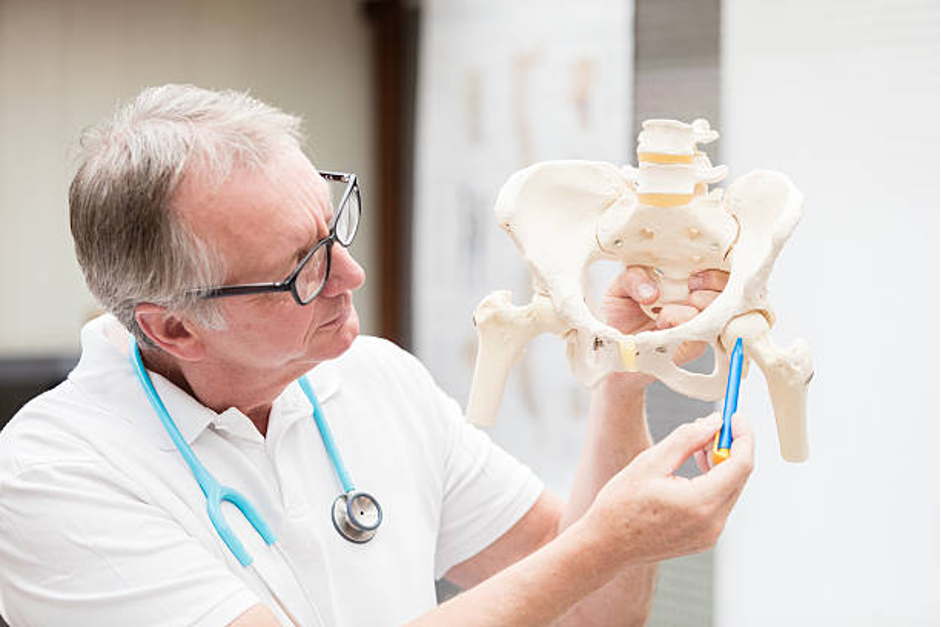
Hip pain and discomfort can significantly impact your quality of life, affecting your ability to move, work, and enjoy daily activities. When non-surgical treatments no longer provide relief, it may be time to consider the expertise of a hip orthopedic surgeon.
In this article, we’ll explore the essential factors to consider when seeking the right hip orthopedic surgeon to address your specific needs and find the relief you deserve.
Understanding the Role of a Hip Orthopedic Surgeon
A hip orthopedic surgeon is a medical professional specializing in the diagnosis and treatment of hip-related conditions, including injuries, degenerative diseases, and congenital issues.
These surgeons are highly trained in both surgical and non-surgical approaches to restore hip function and alleviate pain. If you’re seeking expert care for your hip condition, you can find here dedicated and experienced hip orthopedic surgeons ready to help you regain your mobility and improve your quality of life.
Common Conditions Treated by Hip Orthopedic Surgeons
Hip orthopedic surgeons are skilled in addressing a wide range of hip conditions, including:
- Osteoarthritis: The most common hip condition, characterized by the degeneration of the hip joint’s cartilage and bones.
- Hip Fractures: Injuries that result from falls, accidents, or trauma and require surgical intervention.
- Hip Labral Tears: Damage to the cartilage surrounding the hip joint, often caused by repetitive motion or trauma.
- Hip Impingement: A condition where the bones of the hip joint abnormally rub against each other, causing pain and damage.
- Bursitis: Inflammation of the bursae, small sacs filled with fluid that cushion the hip joint.
Factors to Consider When Choosing a Hip Orthopedic Surgeon
Selecting the right hip orthopedic surgeon is a crucial decision that can significantly impact the outcome of your treatment. Here are the key factors to consider when making this important choice:
1. Credentials and Qualifications
Begin your search by ensuring the surgeon is board-certified in orthopedic surgery. Board certification indicates that the surgeon has completed rigorous training and has met the highest standards of professional competence.
2. Experience and Specialization
Look for a surgeon with extensive experience in treating hip conditions. A surgeon who specializes in hip orthopedics is more likely to have the in-depth knowledge and expertise necessary for optimal outcomes.
3. Referrals and Recommendations
Seek recommendations from your primary care physician, friends, family, or other healthcare professionals. Personal referrals can provide valuable insights into the surgeon’s reputation and patient care.
4. Research and Reviews
Research the surgeon’s background, including their education, training, and any disciplinary actions. Online reviews and patient testimonials can also offer valuable information about the surgeon’s patient satisfaction and outcomes.
5. Hospital Affiliations
Find out which hospitals or surgical centers the orthopedic surgeon is affiliated with. Ensure that the facility is reputable and offers state-of-the-art equipment and technology for hip surgeries.
6. Communication and Comfort
Schedule an initial consultation with the surgeon to assess their communication style and your level of comfort. A good surgeon should listen to your concerns, provide clear explanations, and establish a trusting doctor-patient relationship.
7. Treatment Approach
Discuss the surgeon’s approach to hip conditions and the range of treatment options they offer. Some orthopedic surgeons may emphasize non-surgical methods before considering surgical interventions.
8. Surgical Experience
Inquire about the surgeon’s experience with hip surgeries, including the number of procedures they have performed and their success rates. More experienced surgeons often deliver better results.
9. Patient-Centered Care
Choose a surgeon who prioritizes patient-centered care and involves you in the decision-making process. Your values, preferences, and lifestyle should be taken into account when developing a treatment plan.
The Consultation Process
The initial consultation with a hip orthopedic surgeon is a critical step in assessing their suitability for your needs. During this consultation, be prepared to:
- Discuss your symptoms, medical history, and any previous treatments.
- Ask questions about the surgeon’s experience, treatment recommendations, and expected outcomes.
- Address any concerns or doubts you may have about the proposed treatment.
The consultation is also an opportunity to gauge the surgeon’s communication style, willingness to answer questions, and overall approach to patient care.
Treatment Options and Surgical Procedures
The treatment approach recommended by your hip orthopedic surgeon will depend on your specific condition and its severity. Here are some common treatment options and surgical procedures:
Non-Surgical Treatments
Many hip conditions can be managed effectively through non-surgical methods, such as:
- Physical therapy
- Medications for pain and inflammation
- Lifestyle modifications
- Assistive devices like canes or braces
Minimally Invasive Procedures
Minimally invasive surgeries, such as arthroscopy, can be used to diagnose and treat certain hip conditions. These procedures involve small incisions and reduced recovery times.
Hip Replacement Surgery
For severe hip arthritis or degeneration, hip replacement surgery may be recommended. This procedure involves removing damaged parts of the hip joint and replacing them with artificial components.
Post-Surgery Recovery and Rehabilitation
Recovery and rehabilitation play a significant role in the success of hip surgeries. Your orthopedic surgeon will guide post-operative care, including physical therapy, exercises, and follow-up appointments. It’s essential to follow the recommended rehabilitation plan to ensure a full and effective recovery.
Conclusion: Restoring Mobility and Quality of Life
A hip orthopedic surgeon can be a beacon of hope for individuals suffering from hip pain and mobility limitations. By choosing the right surgeon who meets your needs and preferences, you can embark on a journey toward pain relief, improved mobility, and an enhanced quality of life. Remember that a well-informed decision is key to achieving a successful outcome and a new beginning free from hip pain and discomfort.






